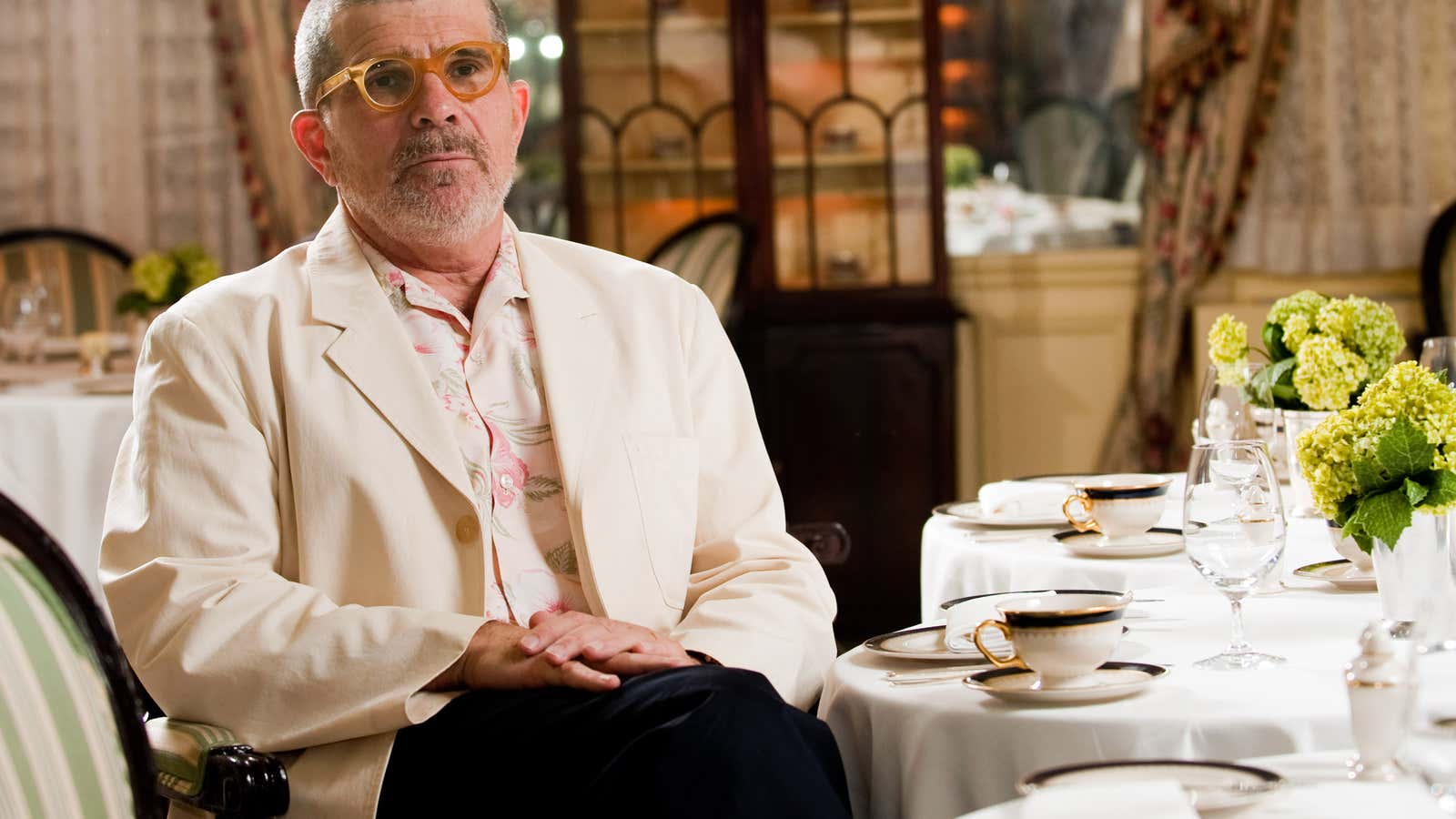Out from behind the curtain, #Metoo might be on its way to the Broadway stage.
David Mamet, the Pulitzer Prize-winning playwright of Glengarry Glen Ross, said in an interview published yesterday that he has written a new play about Hollywood producer Harvey Weinstein, with the working title Bitter Wheat.
“I was talking with my Broadway producer and he said, ‘Why don’t you write a play about Harvey Weinstein?’ And so I did,” Mamet told the Chicago Tribune’s Rick Kogan. “Every society has to confront the ungovernable genie of sexuality and tries various ways to deal with it and none of them work very well,” he added. “There is great difficulty when you are switching modes, which we seem to be doing now. People go crazy. They start tearing each other to bits.”
Mamet’s works are known for their high levels of testosterone, their “virile male-only arenas echoing with obscenities,” as Richard Stayton wrote in the LA Times in 1992, and critics have noted their lack of fully realized women.
Mamet has yet to respond to a request for further comment on Bitter Wheat. But clues might be found in Mamet’s 1992 play, Oleanna, which mirrored the high-profile sexual harassment case of the time, between the Supreme Court nominee Clarence Thomas and his former colleague, Anita Hill. Oleanna‘s male protagonist is a university professor, John, accused by a student, Carol, of sexual harassment and of offering good grades in exchange for private meetings. At the end of the play, Carol tells John that she has leveled an accusation of rape against him.
Reviewers at the time perceived John as the far more sympathetic character, a victim of PC culture, with Carol cast as a perpetrator of group-think and a feminist fanatic. And because of that, the play was divisive: It was received as nuanced and thought-provoking by some (mostly men), and as two-dimensional and dangerous by others (mostly women).
The New York Times’ Frank Rich wrote at the time that one should not “glibly reject his argument against fanatics like Carol who would warp the crusade against sexism, or any other worthy cause, into a reckless new McCarthyism that abridges freedom of speech and silences dissent.”
Meanwhile, Deborah Tannen wrote for the Times: “All over the country, battered women’s shelters fill up as quickly as they’re opened. Yet many people feel, ‘She probably provoked it; she probably was asking for it.’ In Oleanna, these cruel misconceptions are given weight.”
